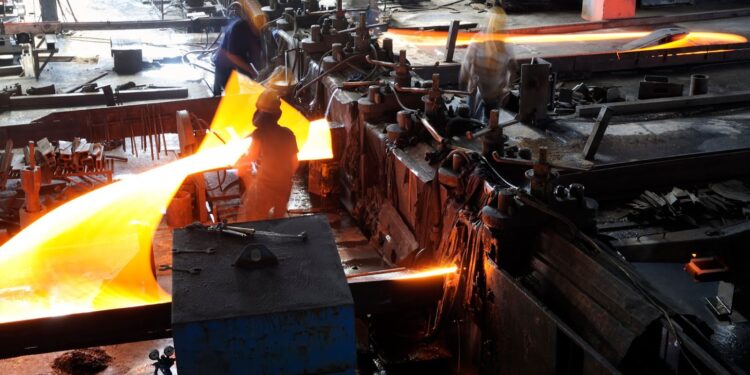Qualcomm, the tech giant in wireless world, has made an unexpected shift in its choice of 3nm AP foundry work. Instead of opting for Samsung, Qualcomm has decided to give all its 3nm AP foundry work to Taiwan’s TSMC. This move has shocked many in the industry, as Samsung had been Qualcomm’s reliable partner for years.
This article will further delve into the reasons behind this shift.
Overview of Qualcomm
Qualcomm Incorporated is an American multinational semiconductor and telecommunications equipment company that designs and markets wireless telecommunications products and services. It derives most of its revenue from chipmaking and profit from patent licensing businesses.
Since 1985, Qualcomm has developed breakthrough technologies that have enabled it to become a leader in 3G, 4G, 5G, and Wi-Fi connectivity solutions. This innovation has been enabled by investment in R&D activities, collaborations with the world’s leading semiconductor suppliers and partnerships with leading research institutions like MIT. Qualcomm established an ambitious five-year plan for 2021–2026 (QPT) setting new objectives for achieving growth through product leadership.
One of its strategies is to shift away from Samsung as its foundry partner for high-end mobile chipsets and towards TSMC as a way to reduce costs, improve production scale and access cutting-edge process node technologies faster than ever before. With TSMC’s current lead in both 5nm FinFET technology and edge CPU performance, this move could further accelerate Qualcomm’s advancement towards leapfrogging the competition in both cost efficiency and performance levels in their premium QTM 5 series mobile chipset offerings.
Overview of Samsung and TSMC
Qualcomm is a leading technology company headquartered in San Diego, California with products used in mobile devices and computing. A recent shift made by Qualcomm has been to transition its chip production from Samsung to TSMC. This shift affects the production of various Qualcomm-bearing products that rely on processor chips. Before getting into the specifics of Qualcomm’s decision, it is important to understand the technology supporting Samsung and TSMC production of chips for mobile devices.
Samsung has expertise in High-K Metal Gates (HKMG), a transistor channel technology that boosts performance and power efficiency of logic chips. But recently, TSMC adopted their version of this technology called “gate last” to fabricate their 14/16nm FinFET nodes, allowing them to offer comparable performance at lower costs than Samsung’s HKMG process.
In addition, TSMC is well known for process optimization which means full compatibility with latest architectures or technologies after just one die-shrink cycle. In contrast, Samsung must revamp their process equipment frequently when they want to take advantage of the latest advancements in transistor architecture or design rules. This gives an edge to TSMC – they can implement new structures faster without compromising on yields or development costs. It has also been speculated that their shrinking lead times in comparison to competition may have attracted Qualcomm’s attraction which resulted in migration from Samsung Semiconductor back to TSMC where they now resume producing Snapdragon series processors once again.

Qualcomm’s shift from Samsung to TSMC
Qualcomm has recently announced its decision to switch from Samsung to TSMC for its 3nm application processor (AP) foundry work, a move that could have a significant impact on the semiconductor industry.
Qualcomm’s move will likely bring more competition to the market of application processors, as it will allow TSMC to join the ranks of Samsung and Intel in producing the latest generation of chips.
This article will evaluate the ramifications of Qualcomm’s shift from Samsung to TSMC.
Reasons for Qualcomm’s shift
Qualcomm has long been considered one of the most experienced and innovative players in the mobile chip industry. Its chips have been widely used by some of the biggest device makers such as Apple, Samsung and Huawei. However, in recent years Qualcomm has seen a shift away from its traditional supplier, Samsung, towards Taiwan-based TSMC. This shift was driven by several factors including:
1. Lower costs: TSMC’s manufacturing process is more cost-effective than Samsung’s and allows Qualcomm to pass on lower prices to their customers.
2. Better technologies: With TSMC’s implementation of 5nm chip production capabilities, Qualcomm gains access to cutting edge technology for its chips without investing in expensive R&D initiatives.
3. Higher yields: TSMC labor conditions result in higher yields which allows for improved quality control and reduced wastage compared to Samsung’s processes.
4. Global scale: With significant production capacity spread across its various global locations, TSMC ensures a consistent delivery schedule for all Qualcomm’s orders regardless of size or demand levels.
5. Increased customization options: TSMC can offer customized services designed specifically for Qualcomm’s product portfolio due to the highly flexible manufacturing process it utilizes.
Impact of Qualcomm’s shift on Samsung and TSMC
Qualcomm’s move away from Samsung to TSMC will have a profound impact on both companies. This shift is not only an example of a supplier change in the mobile industry, but also an indication of a collaboration between competitors. Qualcomm’s shift away from Samsung calls into question their loyalty to the Korean electronics giant and could increase competition between both parties for smartphone and other electronic components.
For Samsung, this move away from Qualcomm will put significant pressure on the company as Qualcomm is one of their largest customer relationships. Without the continual supply of Qualcomm’s software-related technologies, Samsung will be put in a difficult position in terms of retaining their market share and leveraging their capabilities to fight against Apple’s iPhones.
For TSMC, this move opens up monumental opportunities for growth and increased market share within the mobile components industry given that they are now making chips for one of its main competitors, Apple, as well as its own long-time rival Samsung. This new revenue stream allows them to expand beyond their traditional markets and into areas such as artificial intelligence, interconnected devices or 5G technology. It enables them to remain competitive against other chip makers in the market such as Intel or IBM.
Though both firms may face challenges due to this shift made by Qualcomm, one can expect that there will be new opportunities created due to enhanced collaboration between these companies which could spur innovations or services within the mobile components industry.

Implications of Qualcomm’s shift
With Qualcomm’s decision to shift from Samsung to TSMC for its 3nm AP foundry work, there are many implications for both companies involved.
This shift is likely to have a ripple effect in the semiconductor industry, particularly for smartphone makers who use Qualcomm’s chipsets.
This article will explore the consequences that this move could have for Qualcomm, Samsung, and TSMC.
Implications for the semiconductor industry
The decision by Qualcomm to shift away from the South Korean semiconductor maker Samsung back to the Taiwanese Semiconductor Manufacturing Company (TSMC) means significant implications for the global semiconductor industry.
For Qualcomm, switching back to TSMC is a major strategic move as it enables them to reach better feature integration of their Snapdragon processors, which are at the forefront of 5G technology and mobile computing applications. This move comes as Qualcomm seeks to further innovate its offerings and increase market share to compete with rival chipmakers such as Apple, Huawei and other leading players. It also looks to leverage TSMC’s ability for advanced processing capabilities and lithography on 7nm process nodes which gives it a discernable advantage when it comes to processor performance.
However, this change will also have counterparts throughout the semiconductor industry. Samsung will feel losses from decreased revenue associated with itself no longer having orders from Qualcomm; however this could benefit other competing companies looking for a bigger presence in the space such as Intel or Global Foundries. Samsung could potentially divert production capacity used by Qualcomm towards products that could still be made competitively on their foundry process technology resulting in higher revenues elsewhere within its operations.
For TSMC, this move by Qualcomm adds significantly more business while allowing them more time to focus on innovation and developing their differentiated technologies. Ultimately through this decision manufacturer TSMC brings more value into the market through enhanced capabilities that can serve both consumer focused applications such our phones but can also extend beyond into industrial markets like Aerospace & defense or automotive markets providing on-demand advanced processing services catering for superior features.

Implications for Samsung and TSMC
Qualcomm’s decision to shift from Samsung to TSMC for the production of its latest 7nm chipset, the Snapdragon 865, has been met with a great degree of interest. Not only does this signify a major shift in Qualcomm’s manufacturing practices, but it is also expected to have profound implications for both Samsung and TSMC.
For Samsung, this move away from their foundry business will likely be disruptive at best and damaging at worst. The South Korean giant lost out to TSMC on the race to become the world’s first supplier of 7nm mobile phone chip. While Samsung had invested heavily in its manufacturing infrastructure, it was not enough to compete with TSMC’s advanced process technology. Combined with Qualcomm’s focus on cutting-edge features and long-term investments, such as AI assistance and 5G capabilities in its latest mobile devices, there may be long-term implications for those expecting Samsung’s leadership position in mobile processors.
On the other hand, the implications of Qualcomm’s decision highlights the immense progress made by TSMC since entering into contract chip fabrication. For years before claiming victory over Samsung in providing premium chipsets for complex architectures such as 5G modems or AI processors, Taiwanese foundry giant TSMC had worked arduously toward achieving aggressive time-to-market goals set by clients such as Apple and Qualcomm Technologies Inc..
Through its efforts towards technical superiority coupled with software support from companies like Arm – which led aid development steps such as Artificial Intelligence (AI) & Machine Learning (ML) -TSMC had arguably passed all performance expectations in order establish itself ahead of competitors including Samsung on both versatility and cost efficiency fronts.
Henceforth it is expected that this victory shall translate into significant gains by providing savings per unit production cost due efficient resource utilization along with integration of established technologies like low power options through EUV (Extreme Ultra Violet) lithography enabling resolution enhancement capabilities when compared using conventional processes among others.
Conclusion
Qualcomm’s decision to shift its production from Samsung to TSMC is a testament to the Taiwanese chipmaker’s growing presence in the foundry business.
As a leader in this space, TSMC’s will be able to provide cost-effective solutions for Qualcomm’s 3nm AP chips. This move by Qualcomm will not only be beneficial for them as far as production costs, but also for the consumer as it will mean better quality chips for their mobile devices.
tags = Qualcomm, 3-nanometer (nm) application processor, us chip giant, snapdragon 8, samsun electronics, tsmc, interview qualcomm ceo cristiano amon nuvianellisreuters, exynos 2200















